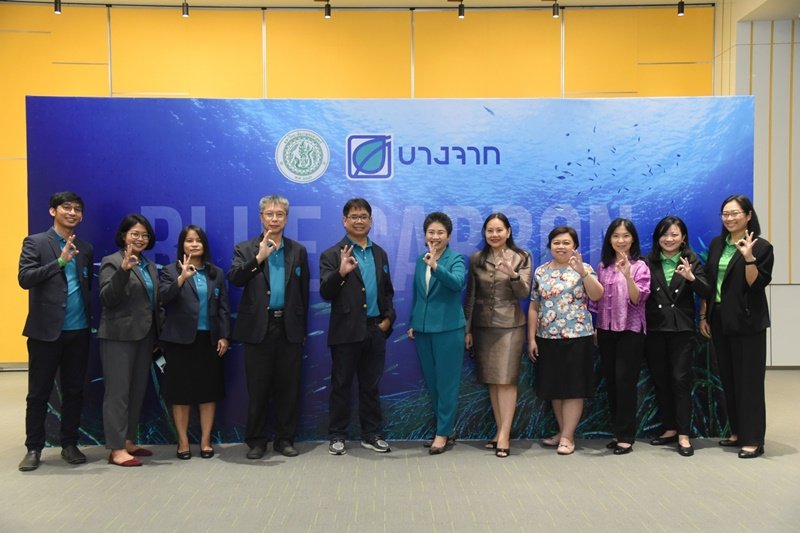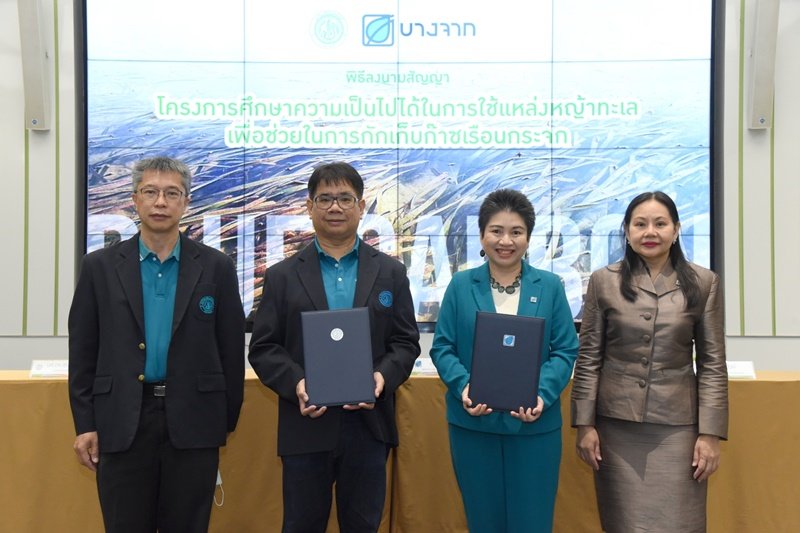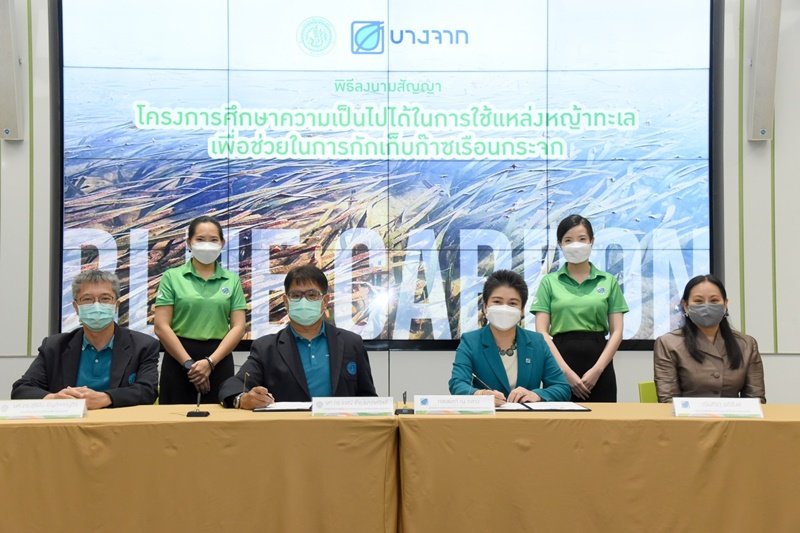16 December 2021
Bangchak supports pioneer study of Blue Carbon: sea grass in eastern coral reefs to reduce GHG emissions

Bangchak Corporation Public Company Limited supports the Faculty of Fisheries’, Kasetsart Univerity study on the feasibility of using sea grass to capture carbon along coral reefs around Koh Mak and Koh Kradad, Trat province, towards achieving the Net Zero target with Blue Carbon as a critical component. The two parties signed a memorandum of understanding (MOU) “Feasibility study of sea grass for GHG capture” represented by Gloyta Nathalang, Executive Vice President, Corporate Sustainability, Branding, and Communication, Bangchak Corporation Public Company Limited, and Assistant Professor Thon Thamrong-Nawasawat, Associate Dean for Administration, Faculty of Fisheries, Kasetsart University.
Gloyta Nathalang, Executive Vice President, Corporate Sustainability, Branding, and Communication, Bangchak Corporation Public Company Limited, stated that “Banghak target of achieving Net Zero by 2050 prioritizes the transition to clean energy, continually increasing the proportion of green businesses, and supporting carbon trading as a critical tool in this transition to promote the creation of low-carbon businesses. Moreover, Bangchak gives great importance to carbon capture and storage to address the issue of long-term greenhouse gases, including investments in new technologies, or supporting natural ecological carbon capture strategies such as the planting terrestrial forests, mangrove forests, and sea grass etc.”
The company is delighted to support the feasibility study of carbon storage capacity of sea grass, considered a Blue Carbon ecosystem, which literature supports has high carbon storage potential, targeting the study to areas around Koh Mak and Koh Kradad, Trat province, a pioneering cooperative study between the private and public sectors on sea grass along eastern coral reefs in Thailand, to verify the accuracy of the carbon storage efficacy of sea grass in the area to offset operational carbon emissions. Additionally, Koh Mak is considered a high potential model eco-tourism destination with strong Thai east coast communities to develop into low-carbon travel destinations.
The feasibility study also supports the restoration of sea grass to reduce operational greenhouse gas emissions conducted by specialists from the Faculty of Fisheries, Kasetsart Univeristy. Bangchak is delighted to support the conservation of marine resources which can help to multiply capture carbon and benefit numerous sectors in the short and long-term because the project is not only beneficial for its GHG reduction capacity, but to society, the holistic research covers capacity building and cooperation with local communities in issues relating to sea grass, greenhouse gases, and biodiversity conservation.
Assistant Professor Thon Thamrong-Nawasawat, Associate Dean for Administration, Faculty of Fisheries, Kasetsart University, as Project Leader, stated “Thank you Bangchak for supporting this study, which is not limited to Faculty of Fisheries, Kasetsart University, we plan to analyze Blue Carbon data from sea grass along coral reefs, working with the Department of Marine and Coastal Resources and local peoples and collaborating with specialists abroad such as many universities in Japan as well. We hope that this study into using sea grass to generate carbon credits will be a critical for Thailand in reducing greenhouse gases by capturing Blue Carbon into ecosystems effectively and objectively in the future.”





